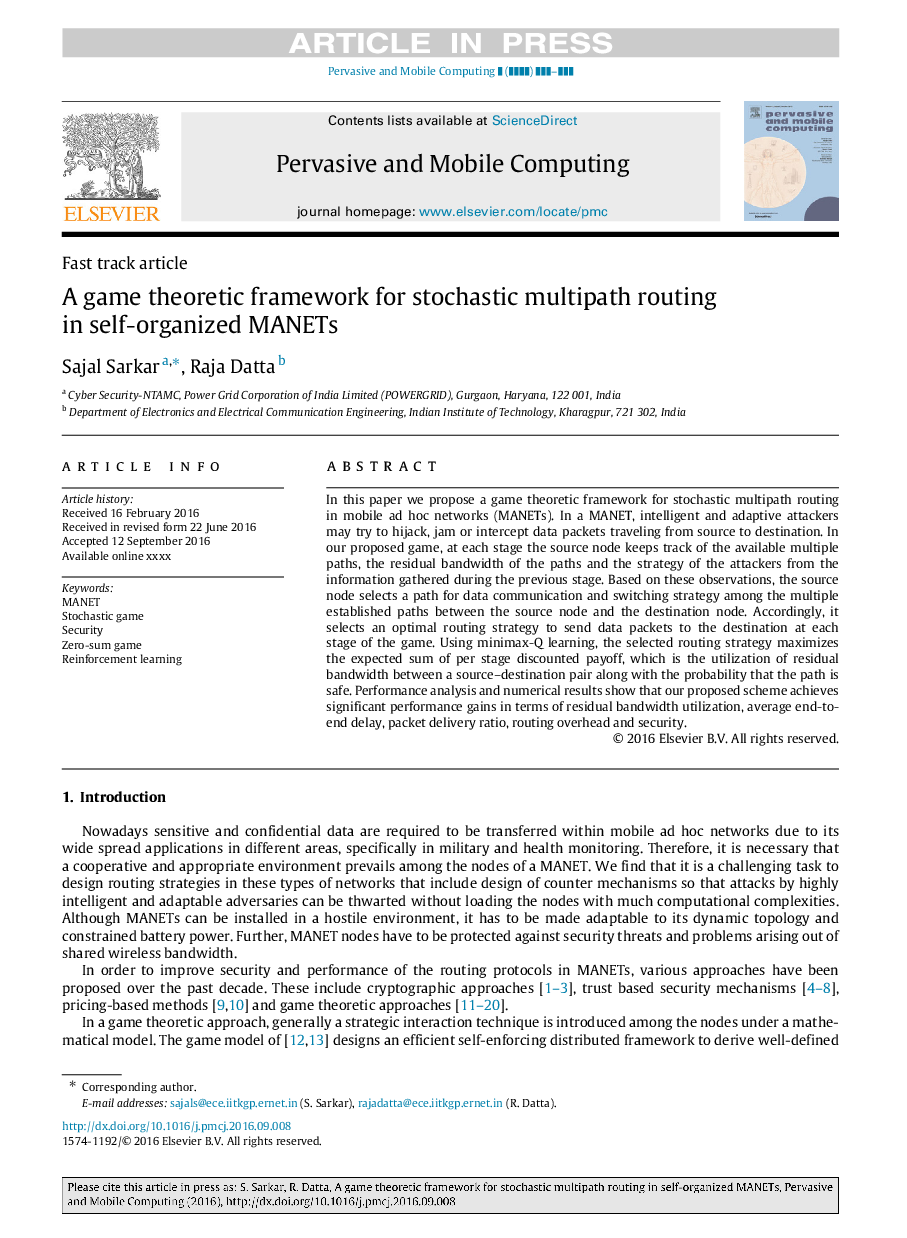| Article ID | Journal | Published Year | Pages | File Type |
|---|---|---|---|---|
| 4957485 | Pervasive and Mobile Computing | 2017 | 18 Pages |
Abstract
In this paper we propose a game theoretic framework for stochastic multipath routing in mobile ad hoc networks (MANETs). In a MANET, intelligent and adaptive attackers may try to hijack, jam or intercept data packets traveling from source to destination. In our proposed game, at each stage the source node keeps track of the available multiple paths, the residual bandwidth of the paths and the strategy of the attackers from the information gathered during the previous stage. Based on these observations, the source node selects a path for data communication and switching strategy among the multiple established paths between the source node and the destination node. Accordingly, it selects an optimal routing strategy to send data packets to the destination at each stage of the game. Using minimax-Q learning, the selected routing strategy maximizes the expected sum of per stage discounted payoff, which is the utilization of residual bandwidth between a source-destination pair along with the probability that the path is safe. Performance analysis and numerical results show that our proposed scheme achieves significant performance gains in terms of residual bandwidth utilization, average end-to-end delay, packet delivery ratio, routing overhead and security.
Related Topics
Physical Sciences and Engineering
Computer Science
Computer Networks and Communications
Authors
Sajal Sarkar, Raja Datta,
